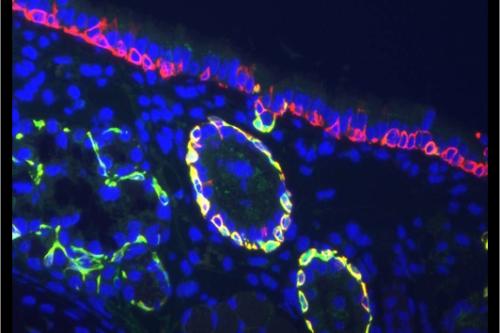
UCLA stem cell researcher receives CIRM grant as part of stem cell “bank” initiative
Dr. Brigitte Gomperts, a member of the Eli and Edythe Broad Center for Regenerative Medicine and Stem Cell Research and associate professor of pediatric hematology/oncology, received a Tissue Collection for Disease Modeling grant of over $900,000 from the California Institute of Regenerative Medicine (CIRM). The award will support the collection of blood from patients with a progressive and potentially fatal lung disease, idiopathic pulmonary fibrosis (IPF), and the blood will be used to create induced pluripotent stem cells (iPSC). iPSC can become any cell in the body, similar to embryonic stem cells, but instead of coming from human embryos, scientists induce skin or blood cells back to a pluripotent state in the laboratory.
Gomperts’ grant builds on initial iPSC disease-in-a-dish research she is conducting with a generous gift from the Dave Steffy Stem Cell Research Fund for Idiopathic Pulmonary Fibrosis. Her research developed IPF related iPSC that are genetically identical to the people who donated the samples, providing a way for Gomperts to study the development of the disease in the laboratory and test drugs that may be effective against IPF.
The new award is part of a larger CIRM collaborative initiative that will generate and ensure the availability of high-quality, disease-specific iPSC through a Stem Cell Repository, or bank. The CIRM Stem Cell Repository, will make the new disease specific iPSC available to qualified and approved scientists to study and create disease-in-a-dish models, targets for therapy, and discover and develop new drugs to treat disease.
IPF causes scarring of the lungs, eventually, making it impossible for patients to breathe. The disease affects more than 200,000 people in the USA and more than two thirds of patients diagnosed with IPF die within five years. The true prevalence of the disease is unknown because it may go unrecognized and undiagnosed for many years. Gomperts research and contribution to the CIRM initiative will help improve the understanding of IPF and possibly identify therapies that will greatly affect the quality of life for IPF patients in California, the nation, and the world.
